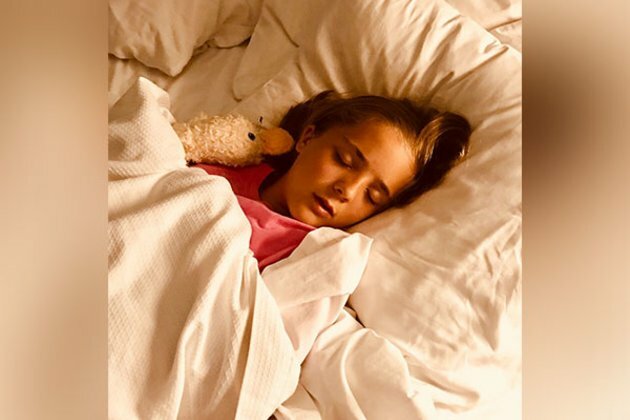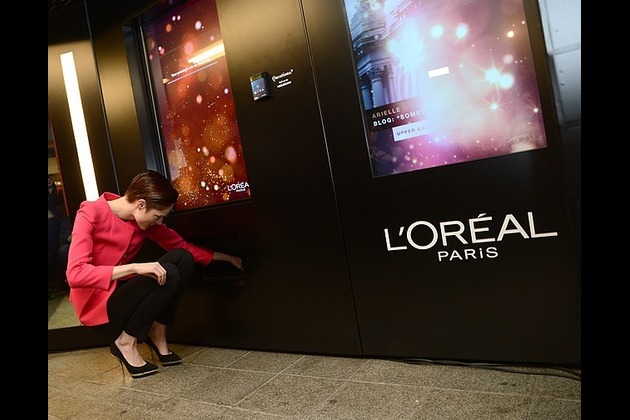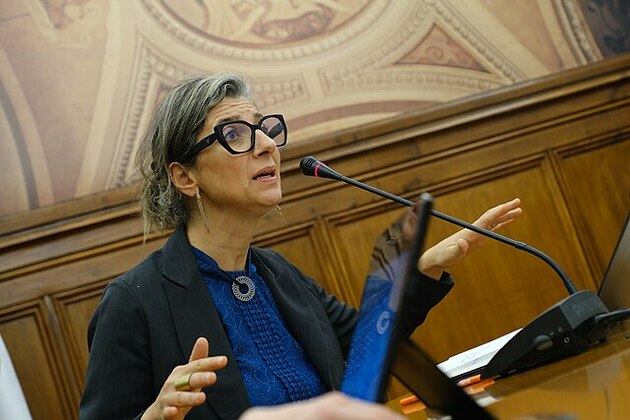Study finds even dim light before going to bed may disrupt a preschooler's sleep
ANI
28 Jan 2022, 18:57 GMT+10

Colorado [US], January 28 (ANI): A new study has found that even a little exposure to light can prompt the necessary sleep-promoting hormone melatonin to plummet in preschoolers in the hour before bedtime, potentially disrupting their sleep.
The study has been published in the 'Journal of Pineal Research'.
The study is the latest in a series, funded by the National Institutes of Health, examining how the central body clock of young children is unique. It suggested that preschoolers are highly susceptible to the physiological impacts of light at night, and some children may be even more sensitive than others.
"Our previous work showed that one, fairly high intensity of bright light before bedtime dampens melatonin levels by about 90 per cent in young children," said first author Lauren Hartstein, a postdoctoral fellow in the Sleep and Development Lab at CU Boulder.
"With this study, we were very surprised to find high melatonin suppression across all intensities of light, even dim ones," she added.
Light is the body's primary time cue, influencing circadian rhythms that regulate everything from when we feel tired or hungry to what our body temperature is throughout the day.
When light hits the retina, a signal transmits to a part of the brain called the suprachiasmatic nucleus, which coordinates rhythms throughout the body, including nightly production of melatonin. If this exposure happens in the evening as melatonin is naturally increasing, it can slow or halt it, delaying the body's ability to transition into biological nighttime.
Because children's eyes have larger pupils and more transparent lenses than adults, light streams into them more freely. (One recent study showed that the transmission of blue light through a 9-year-old's eye is 1.2-times higher than that of an adult).
"Kids are not just little adults," said senior author Monique LeBourgeois, an associate professor of Integrative Physiology and one of the few researchers in the world to study the circadian biology of young children.
"This heightened sensitivity to light may make them even more susceptible to dysregulation of sleep and the circadian system," she added.
To quantify how susceptible they are, the researchers collaborated with Colorado School of Mines mathematician Cecilia Diniz Behn for a new study.
They enlisted 36 healthy children, ages 3 to 5 years, for a nine-day protocol in which they wore a wrist monitor that tracked their sleep and light exposure. For seven days, parents kept the children on a stable sleep schedule to normalize their body clocks and settle them into a pattern in which their melatonin levels rose at about the same time each evening.
On the eighth day, researchers transformed the children's home into what they playfully described as a "cave" -- with black plastic on the windows and lights dimmed -- and took saliva samples every half hour starting in the early afternoon until after bedtime. This enabled the scientists to get a baseline of when the children's biological night naturally began and what their melatonin levels were.
On the last day of the study, the young study subjects were asked to play games on a light table in the hour before bedtime, a posture similar to a person looking at a glowing phone or tablet. The light intensity varied between individual children, ranging from 5 lux to 5,000 lux.(One lux is defined as the light from a candle 1 meter, or about 3 feet, away).
When compared to the previous night with minimal light, melatonin was suppressed anywhere from 70 per cent to 99 per cent after light exposure. Surprisingly, the researchers found a little-to-no relationship between how bright the light was and how much the key sleep hormone fell. In adults, this intensity-dependent response has been well documented.
Even in response to light measured at 5 to 40 lux, which is much dimmer than typical room light, melatonin fell an average of 78 per cent. And even 50 minutes after the light extinguished, melatonin did not rebound in more than half of the children tested.
"Together, our findings indicate that in preschool-aged children, exposure to light before bedtime, even at low intensities, results in robust and sustained melatonin suppression," said Hartstein.
This does not necessarily mean that parents must throw away the nightlight and keep children in absolute darkness before bedtime. But at a time when half of the children use screen media before bed, the research serves as a reminder to all parents to shut off the gadgets and keep light to a minimum to foster good sleep habits in their kids. Notably, a tablet at full brightness held 1 foot from the eyes in a dark room measures as much as 100 lux.
For those children who already have sleep problems?"They may be more sensitive to light than other children," said LeBourgeois, noting that genes - along with daytime light exposure - can influence light sensitivity.
"In that case, it's even more important for parents to pay attention to their child's evening light exposure," she added. (ANI) Share
Share
 Tweet
Tweet
 Share
Share
 Flip
Flip
 Email
Email
Watch latest videos
Subscribe and Follow
Get a daily dose of New York Statesman news through our daily email, its complimentary and keeps you fully up to date with world and business news as well.
News RELEASES
Publish news of your business, community or sports group, personnel appointments, major event and more by submitting a news release to New York Statesman.
More InformationBusiness
SectionStandard and Poor's 500 and and Nasdaq Composite close at record highs
NEW YORK, New York -U.S. stock markets closed with broad gains on Thursday, led by strong performances in U.S. tech stocks, while European...
Persson family steps up H&M share purchases, sparks buyout talk
LONDON/STOCKHOLM: The Persson family is ramping up its investment in the H&M fashion empire, fueling renewed speculation about a potential...
L'Oreal to buy Color Wow, boosts premium haircare portfolio
PARIS, France: L'Oréal is making a fresh play in the booming premium haircare segment with a new acquisition. The French beauty conglomerate...
Robinhood launches stock tokens for EU investors, adds OpenAI
MENLO PARK, California: Robinhood is giving European investors a new way to tap into America's most prominent tech names — without...
Wall Street diverges, but techs advance Wednesday
NEW YORK, New York - U.S. stocks diverged on Wednesday for the second day in a row. The Standard and Poor's 500 hit a new all-time...
Greenback slides amid tax bill fears, trade deal uncertainty
NEW YORK CITY, New York: The U.S. dollar continues to lose ground, weighed down by growing concerns over Washington's fiscal outlook...
International
SectionOver 60 companies named in UN report on Israel-Gaza conflict
GENEVA, Switzerland: A new United Nations report alleges that dozens of global corporations are profiting from and helping sustain...
UK lawmakers desigate protest group as terrorist organization
LONDON, UK - Lawmakers in the United Kingdom have voted overwhelmingly to proscribe the direct-action group Palestine Action as a terrorist...
Dalai Lama to address Buddhist conference, reveal succession plan
DHARAMSHALA, India: The Dalai Lama is set to address a significant three-day conference of Buddhist leaders this week, coinciding with...
US Supreme Court backs Texas efforts to shield minors online
WASHINGTON, D.C.: In a significant ruling last week, the U.S. Supreme Court upheld a Texas law requiring age verification for users...
Turkey, France battle wildfires amid early Europe heatwave
ISTANBUL/PARIS/BRUSSELS: As searing temperatures blanket much of Europe, wildfires are erupting and evacuation orders are being issued...
Venetians protest Bezos wedding with march through the town
VENICE, Italy: Over the weekend, hundreds of protesters marched through the narrow streets of Venice to voice their opposition to billionaire...













